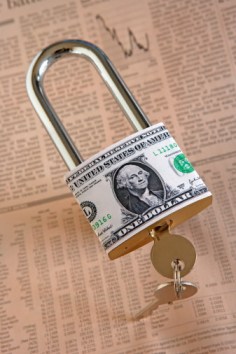 Different countries are…well, different. They have different laws and languages, funny stamps, and candy that you can’t get at home. We usually think that part of being a distinct country is having a distinct money, too. Currency is becoming less important to national sovereignty, although it is still fraught with diplomatic and political issues, not to mention economics.
Different countries are…well, different. They have different laws and languages, funny stamps, and candy that you can’t get at home. We usually think that part of being a distinct country is having a distinct money, too. Currency is becoming less important to national sovereignty, although it is still fraught with diplomatic and political issues, not to mention economics.
Having your own money implies a certain governmental sophistication. After all, a currency needs mechanisms to support it. There has to be a central bank that takes care of interest rates, buying and selling reserves on the open market to maintain trade balances. There has to be a government that takes charge of taxation, spending, and borrowing to keep the economy growing and make the currency of value. It’s a lot of work, although there is a nifty little perk called seigniorage, or government revenue that comes from printing money.
The European Union did a masterful job of converting most of the continent to a single currency, the euro, in 1999. It’s a successor to a similar currency that was used only for trade, the ECU, which was established in 1979. But the euro has only been in existence for a decade, and it hasn’t been tested by a financial crisis before. It’s unclear how the currency will hold up, because the EU makes only some of the decisions about economic policies for member countries.
The U.S. government doesn’t seem to care if other countries use the dollar. In some cases, it’s thrilled: the Chinese government pegs the yuan at about 7 per U.S. dollar. If China were to let its currency float freely, the cheap Chinese goods that U.S. consumers love would become a lot more expensive in dollar terms, hurting our economy. Panama doesn’t even bother with a peg. It uses the same greenbacks used everywhere in the 50 states.
Which brings us to the problem of Iceland. With 300,000 people and a GDP of $12 billion, it’s the smallest economy in the world with its own currency. The bank collapse last year was caused in part by the currency becoming too valuable relative to the dollar and the euro. Currencies can be bought or sold like any commodity; just as with stocks or real estate, if the price gets too high, people sell and invest elsewhere, popping the bubble. Now Iceland is left with a currency that’s lost about 20% of its value while the nation’s leaders are trying to assure the world — and Icelandic citizens — that is it safe to invest.
Iceland is the place where the North American and European continental plates meet, but the people consider themselves to be European. The nation is part of the European Economic Community but not the European Union. You would think that the logical move would be to go onto the euro, but you’d be wrong. To do that, Iceland would have give up some of its fishing territories, which Ireland and the U.K. believe encroach on theirs. Fishing is the biggest part of Iceland’s economy, so the issue is beyond academic. It could go on the U.S. dollar, but then it would be thumbing its nose at Europe. Denmark is not on the euro, so Iceland could choose to go on the Danish krone; unfortunately, that would mean ceding some hard-fought independence against a colonial master.
Antigua has been hit worse by scandals than Iceland. It’s not a terribly well-developed country. The population is just 86,000 and the GDP is $1.6 billion. Allen Stanford, a Texan, operated a bank and owned a cricket team there, even earning an Antiguan knighthood. It turned out that his bank was a sham, and now Antigua is in shambles. However, Antigua doesn’t have its own currency. It uses the East Caribbean Dollar, which is shared by eight countries and pegged at a rate of $1 U.S. = $2.70 ECD. That makes the currency stable. People making investments know what their money is worth now and what to look at to see what it will be worth in the future.
As people become more mobile and trade spreads ever wider, the need for an understandable currency goes up. In years past, the currency was based on gold, which meant that everyone understood its value. The problem is that the size of an economy was limited by the amount of gold it had, so the gold standard was abandoned by 1972. The market now decides the value of one currency relative to another unless a peg is involved. The market doesn’t like the krona now, which is great if you are a tourist — and not so good if you are an Icelander buying groceries.

![Reblog this post [with Zemanta]](http://img.zemanta.com/reblog_e.png?x-id=7cff3bcd-36b3-4202-98bc-dd906d5dc43a)



Comments